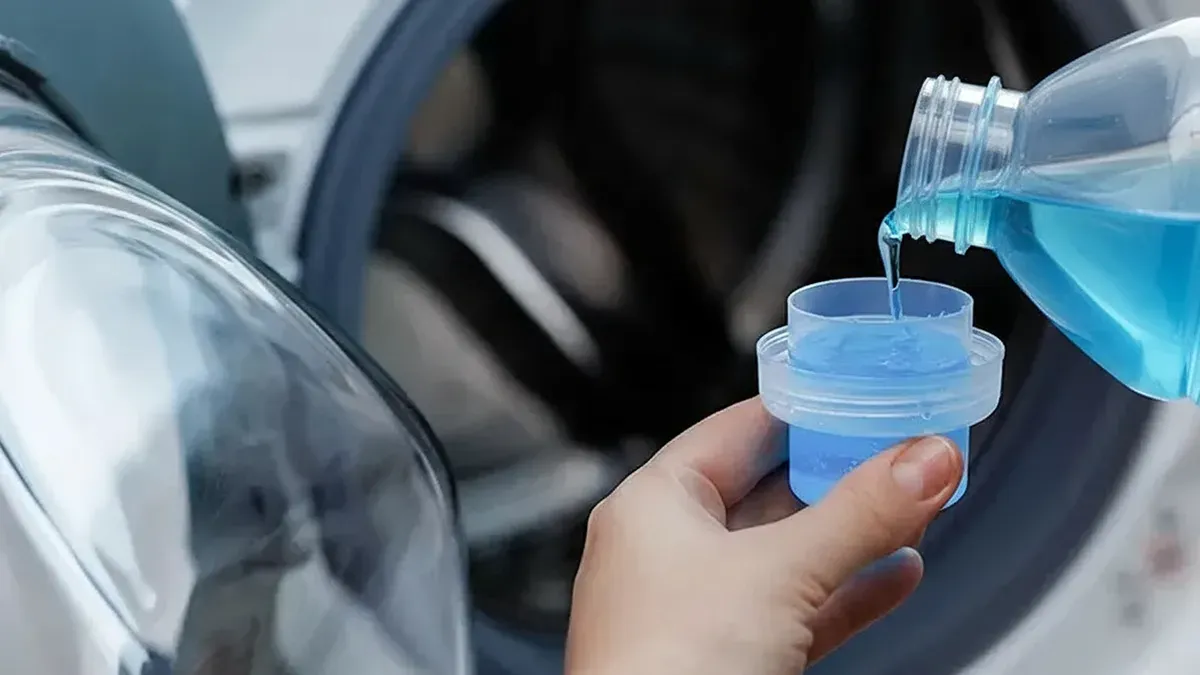Forget Fabric Softener: This Cheap Trick Makes Laundry Softer Than Ever

A lot of people are looking for cleaner, healthier, and more sustainable ways to live, and many are turning to everyday items instead of chemical-heavy products. One item that’s getting a lot of buzz is white vinegar. More and more folks are ditching traditional fabric softeners for this simple, natural alternative—not only does it leave laundry softer, but it also brings along a host of benefits that go well beyond the washing machine.
Issues with Traditional Fabric Softeners
Traditional fabric softeners do help make clothes feel soft, but they come with their own set of problems. Many of them are packed with synthetic chemicals that can build up in your clothing fibers. Over time, these residues might trigger allergies or skin irritations, especially in babies and people with sensitive skin. Plus, the leftovers of these softeners can stick around in your washing machine, sometimes causing clogs or weird smells.
This chemical buildup isn’t just a headache for your clothes and washer—it can also affect our water systems. When these chemicals get washed away into our waterways, they add to pollution and can even disturb aquatic life.
White Vinegar: A Smart Substitute
Enter white vinegar—a handy and effective swap for regular fabric softeners. Made from plain vinegar with no extra colors, scents, or flavors, it’s easy to find at any supermarket. Unlike the chemical versions, white vinegar softens fabrics without leaving behind any unwanted film.
Its knack for neutralizing odors makes it a favorite for those who love fresh-smelling laundry. Your clothes come out of the dryer soft and clean, without a lingering vinegar smell. This natural alternative avoids the soap and perfume residues that can irritate sensitive skin.
On top of that, using white vinegar can help keep your washing machine clear of limescale, which not only keeps your machine running smooth but also helps protect your clothes. Its antibacterial properties add an extra layer of cleanliness by cutting down on germs, even after cooler wash cycles.
Using White Vinegar in Your Laundry
Adding white vinegar into your laundry routine is super simple. Just pour 50 to 100 ml of it into the machine during each wash cycle, in place of your usual fabric softener. This trick works well for all fabrics, except silk. If you’re into a bit of fragrance, you can mix in a couple of drops of natural essential oil with the vinegar—but be careful not to overdo it, as too much oil might harm some parts of your machine.
Make sure you’re using white vinegar and not cleaning vinegar; the latter is too harsh for your fabrics and could damage the rubber parts in your washer.
Real-Life Stories and Tips
A bunch of people have noticed a big difference after switching from chemical softeners to white vinegar. One story mentions how clothes stay soft and fresh much longer—even when washing bedding or sports gear frequently. Besides saving money, the switch has made life a bit more comfortable for the whole family.
For families with little ones or those dealing with sensitive skin, white vinegar offers a safe option that doesn’t skimp on performance. It helps keep detergent residues to a minimum, reducing the chances of allergic reactions or skin irritations.
A Greener Way to Do Laundry
As more people care about the environment, finding friendly alternatives like white vinegar is becoming a top priority. By cutting back on unhealthy chemicals and saving a few bucks on laundry products, this switch makes your laundry routine healthier and more sustainable.
Using white vinegar not only perks up your clothes and keeps your washing machine in tip-top shape but also fits into a broader commitment to living in a more environmentally mindful way. Whether you’re motivated by health reasons, environmental considerations, or just a desire to try something new, this simple change can make a real difference in your day-to-day routine.
Trying out natural alternatives like white vinegar encourages us all to rethink our habits and explore simpler options whenever possible. As more people learn about how everyday products affect our bodies and the world around us, switching to something this straightforward could be a game changer for many.